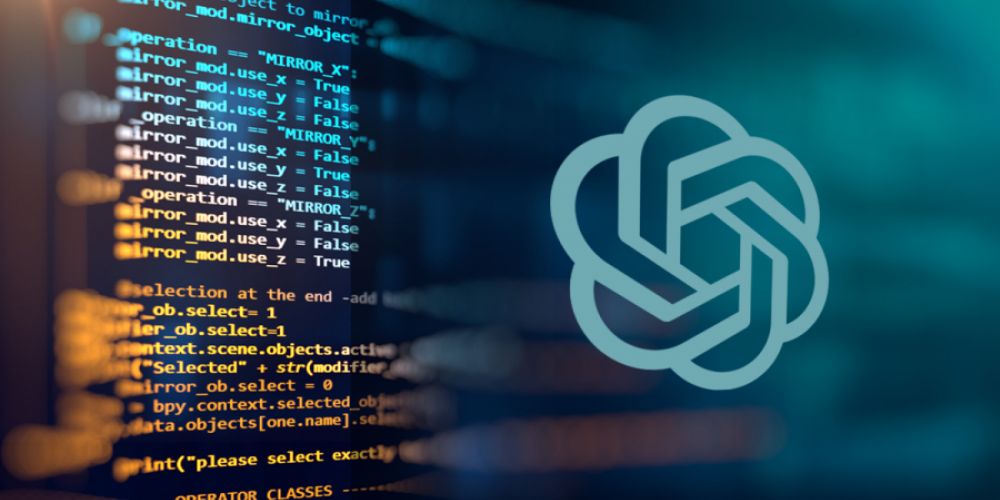
Developers are already using ChatGPT to write code and save time. Should you?
JACK OF ALL TRADES, MASTER OF…
In the months since ChatGPT was released to the public, millions of users worldwide have rolled up their sleeves to see what it can do.
In addition to writing articles and term papers, it can compose music and poetry, play trivia games, update your resume, generate recipes, tweak your fitness plan, solve math problems, and even plan a birthday party.
It can also generate code. Or tweak existing code. Or debug it. Which understandably makes software developers nervous.
After all, if anyone can ask a bot to write code, what happens to the millions of coders who have long viewed software development as something of a safe haven from disruption? If someone with zero programming skills can use the power of AI to create new – or improve existing – functionality, should kids today even bother entering the field?
Girish Mathrubootham says they should.
The CEO of Freshworks, the cloud-based customer service software company, says his developers have been using the popular chatbot to generate code, and they’re already reaping the rewards.
“We use ChatGPT to write code,” he said in an interview with Fortune. “[Software development that] used to take anywhere from eight to 10 weeks…now can be done in less than a week.”
Research by Microsoft and its GitHub subsidiary goes a long way toward validating the accelerative impact of AI on developers. The researchers divided developers into two separate groups; the first one had access to AI tools to help generate code, while the second did not. The results were stunning: the AI-assisted developers completed coding-related tasks in less than half the time – a full 56% faster – compared to those who didn’t have AI tools in their toolkits.
HELP, NOT REPLACE
The results echo a growing body of research and case studies that suggest AI can turbocharge developer productivity if it is leveraged in an appropriate manner. And the biggest names in the business are already pivoting in that direction.
For example, Amazon’s coding assistant, CodeWhisperer, is now live, and developers at major clients, including Accenture, are already using the toolset to speed up the coding process and improve accuracy. Over at Google, the company is asking its own developers to test the Bard chatbot’s ability to create and fix code.
All of this takes place against a growing drumbeat of clickbait headlines screaming, in ever larger numbers, how many jobs AI will be wiping out. A Goldman Sachs report predicts 300 million jobs – or 18% of the global knowledge workforce – could be rendered obsolete by AI. The bank further estimates two-thirds of all jobs in the U.S. and Europe “are exposed to some degree of automation” (at least partly), while another 25% of roles in these markets could be completely replaced by AI.
So, should developers be running for the hills?
As developers ourselves, the answer is an emphatic no. We’ve long advocated the need to embrace change and not fear it. While some sub-tasks, like code generation, documentation, and bug fixing, stand to at least be partly taken over by AI-powered automation, the development discipline itself isn’t going anywhere.
These ever-improving AI tools don’t operate in a vacuum: they need Increasingly upskilled developers to unlock their potential as a growing legion of AI-generation coders – including STEP Software’s own team members – come up with new ways to build and maintain utility for the businesses they serve.
AI isn’t the first radical addition to the developer’s toolkit, and it certainly won’t be the last. What is certain is that the developer’s toolkit – like the developers who rely on them – isn’t disappearing. This is not the time to ban the bots. Indeed, no one in this business ever succeeded by ignoring change. Now is the time to double down on AI.
THE BOTTOM LINE
Like it or not, disruption is coming. In a study sponsored by ChatGPT creator OpenAI, researchers examined the impact of large language models (LLMs) on the 19,000 identified tasks that underpin the top 1,000 occupations within the U.S. economy. They examined how LLMs could perform each task and concluded that in 19% of jobs, half of the tasks within those roles could be completed by AI.
Scary, sure. But there’s no shortage of organizations who are diving into the fray regardless, and letting their own developers figure out ways to add value and find new ways to drive the business.
Because software development has always been about using the best tools available to move the bar even higher. If this process makes existing parts of the developer’s role obsolete, count on smart developers – and smart leaders – to craft new tasks that allow them to further push their skills and help the organization stay at the leading edge.
That means more opportunity for great developers. Not less. Reach out to us if you’d like to learn more.


